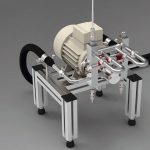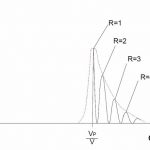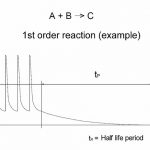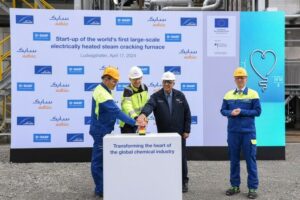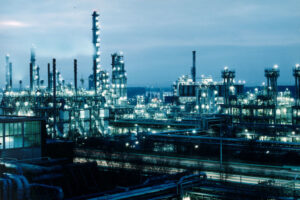For more than two decades now, Fluitec has specialised in converting batch processes to continuous operation. A reactor concept based on the familiar mixer/heat exchangers was recently developed by the company for converting semi-batch processes to continuous reaction processes and in doing so combining a very high conversion rate with reliable control of exothermic reactions.
Converting semi-batch processes to continuous mode
The reactor concept with a difference
For more than two decades now, Fluitec has specialised in converting batch processes to continuous operation. A reactor concept based on the familiar mixer/heat exchangers was recently developed by the company for converting semi-batch processes to continuous reaction processes and in doing so combining a very high conversion rate with reliable control of exothermic reactions.
As processes become more and more automated, the development of continuous processes which are suitable for manufacturing smaller volumes is a hotly debated issue. At the same time, continuous reaction processes in a plug flow reactor (PFR) have to take account of various rules and special aspects. The great advantage of microreactors for syntheses – which are carried out in homogeneous liquid phase, for example – is their excellent thermal control of strongly exothermic reactions. However, unless the reactors are arranged in parallel, microreactor applications are largely confined to laboratory scale. To ensure safety and reliability, the minimum amount approach and the explosion theory are typically employed to determine the critical apparatus dimensions. This approach dictates that only capillaries with a diameter 2 mm can be used in strongly exothermic reactions. Unfortunately, such capillaries result in laminar flow, even in aqueous systems, with potentially detrimental effects on the reaction.
If a production throughput 10 l/h is required, there is generally no alternative to millistructured reactors. In conventional tube reactors this means a smaller heat-exchanging area because the surface-to-volume ratio is bound to be lower. This is one of the principal reasons why weakly exothermic batch reactions tend to be chosen when converting chemical processes to millistructured reactors. Fluitec mixer/heat exchangers combine scalability with a constant surface-to-volume ratio and constant mixing efficiency. However, this presupposes a surface-to-volume ratio 800 m²/m³ because the reactors must be manufactured in conformity with the applicable standards and regulations such as ASME, AD 2000 or EN 13445. It can thus be said that, in many instances, converting a semi-batch chemical process to continuous operation is either inappropriate or at the very least extremely complicated, for example cascade dosing to protect against overheating in connection with strongly exothermic reactions, if only a conventional PFR or PFR cascade set-up is considered.
Combined reactor set-up
The flow characteristic in Fluitec mixer/heat exchangers with a Bodenstein number 100 approximates an ideal 85,978 mm plug regime in both laminar and turbulent flows. It is equally well-known that at high recycle ratios R50 an ideal plug flow reactor with no back-mixing approximates a reactor with total back-mixing, in other words a continuous stirred-tank reactor (CSTR). PFR recycle reactors thus allow optimal isothermal control of an array of reactions. However, total back-mixing is often not desirable to enable the reaction course to be controlled precisely.
A reactor concept based on the familiar mixer/heat exchangers was recently developed by Fluitec for continuous reaction processes combining a very high conversion rate with reliable control of exothermic reactions. The recycle rate in the recycle reactor is reduced for this purpose such way that sufficient heat transfer is still guaranteed owing to the dilution of the product; in addition, a plug flow reactor is installed at the outlet of the recycle reactor in order to maximise the conversion rate. This reactor set-up is referred to as a plug flow recycle reactor (PFRR). The flow diagram shows a laboratory reactor with a PFRR reactor set-up having the following characteristics:
- (1) Plug flow in all reactor sections as well as all flow regimes and viscosity ranges (Bo100)
- (2) Measurable, polytropic temperature curve at the educt inlet to ensure that the reaction is ignited
- (3) Immediate mixing of the inlet streams with the recycle stream (short mixing times)
- (4) Controlled, very low recycle ratio R
- (5) Monitored quality/conversion rate in continuous operation, e.g. with infrared or Raman probes
- (6) Safe operation in conformity with the requirements of TRAS 410 (∆Tcooling failure50°C)
- This typical laboratory reactor operates continuously rather than in semi-batch mode. In the example described here, the adiabatic temperature rise of the fast exothermic reaction is ∆Tad = 250 K for an overall conversion rate UA of almost 100 %. The polytropic temperature profile is constantly monitored using temperature sensors which are arranged axially in series from the inlet to the end of the reactors. According to TRAS 410, the adiabatic temperature rise must not exceed 50 K all along the reaction section of semi-batch processes, even if a cooling failure occurs. If the example is designed so that in the downstream residence time reactor no more than 20 % is converted in the volume VP, it is certain that this will be so. Without adequate cooling, the remaining 80 % to be converted in the recycle reactor cause an inadmissible temperature rise of up to 200 K following a cooling failure. To prevent this, a dilution with a recycle ratio of five has been chosen in our example. This recycle ratio results in a fast dilution of the newly added educt, so that in the event of a cooling failure the permissible temperature rise is not exceeded, either with or without cooling. In the majority of cases, the recycle rate can be further reduced if mixer/heat exchangers are used, because fast mixing in a mixer/heat exchanger prevents hotspots from forming. This highly simplified safety assessment enables safe operation of a continuous process with no need for complex kinetic studies. Provided the enthalpy of reaction – and hence the adiabatic temperature rise – is known, a sufficient level of safety is guaranteed for fast reactions.
Principle of the reactor set-up
The other two diagrams are schematics of the PFRR’s residence time distribution and reaction course. The narrow residence time distribution at low recycle ratios, familiar from standard semi-batch processes, is clearly visible. Based on experience so far, the PFRR set-up permits a large number of strongly exothermic semi-batch reactions to be converted to continuous reaction processes easily and safely. The PFRR is typically suited for the following applications: liquid-liquid reactions with high heat effects, conversion of three-stage CSTR reactor cascades, gas-liquid reactions with heat and/or mass transfer limitations, polymerisations and polyadditions, esterifications and polycondensations with continuous water withdrawal and catalytic fixed-bed reactions.
www.cpp-net.com search: cpp0116fluitec
Alain Georg
Alain Georg
Head of R+D, Fluitec
Share:



